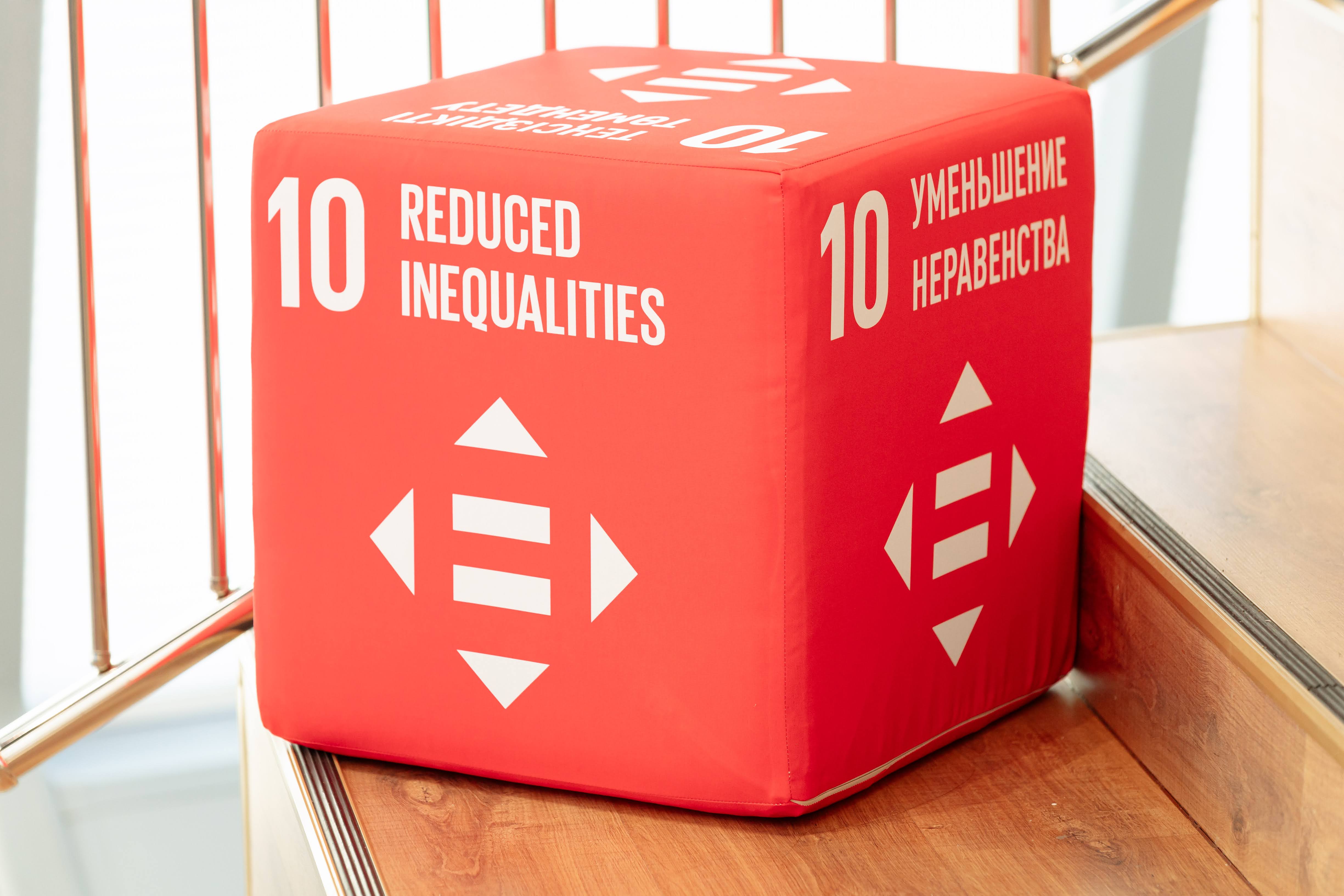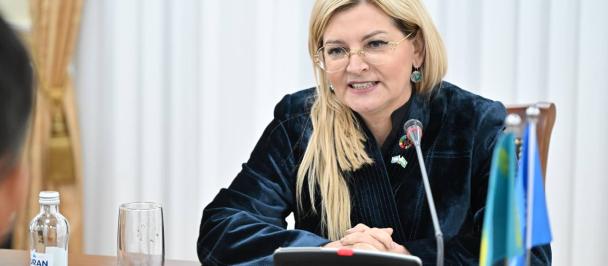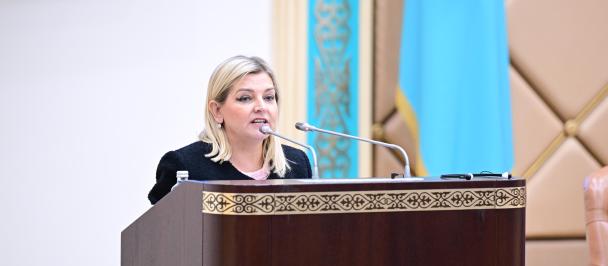Speech of UNDP Deputy Resident Representative in Kazakhstan at the SDG briefing in Astana
September 13, 2023

Ladies and gentlemen, esteemed Ambassadors,
I'm here on behalf of the United Nations Development Programme (UNDP) and the entire UN Family in Kazakhstan to express our heartfelt appreciation to the diplomatic community for gathering prior to the SDG Summit. Today, we aim to provide you with a clear and concise update on the progress we've made towards achieving the Sustainable Development Goals (SDGs).
As an SDG integrator, our mission is to collaborate with the UN country team to expedite global SDG achievement through integrated solutions. To accomplish this, we've established four specialized workstreams that focus not on individual SDGs but on bridging the gaps between them. These gaps are like puzzle pieces, and by addressing them comprehensively, we aim to drive the entire 2030 Agenda forward.
Since 2018, we've been actively partnering with the Government of Kazakhstan on SDGs. Together, we've established a responsive SDG framework within the government's structure, fostering efficient coordination among state bodies. Innovative tools have helped us assess SDG integration, evaluate financing policies, and provide targeted technical assistance for better decision-making.
Currently, we observe that the Government has outlined precise priorities in the area of the SDGs with the main lean towards social-oriented programmes in the regions. These well-defined targets serve as a guiding framework, streamlining the efforts of the entire UN country team. This enables us to offer tailored assistance where it is most needed, ensuring a more effective and targeted approach to achieving the SDGs.
Currently, one of the foremost priorities for the Government is the localization of the SDGs and alignment with regional development agendas. UNDP is currently providing technical support to pilot SDG localization in the newly established regions – Abay, Ulytau and Zhetysu and Kyzylorda. These pilot initiatives are aimed at identifying the pivotal factors that facilitate SDG localization, as well as potential hurdles. The overarching objective is to develop a comprehensive set of recommendations that will enhance and facilitate the localization process, laying the foundation for broader-scale up implementation at the national level.
The concept of localization encompasses two essential dimensions namely, how the Sustainable Development Goals (SDGs) can serve as a trigger for shaping local development policies; and, how regional Akimats can actively contribute to SDG achievement in oblasts. In order to accelerate this concept, capacity-building workshops are currently underway, aimed at enhancing the skills and knowledge of local professionals.
At the culmination of this initiative, approximately 150 public servants across four regions will have acquired practical skills that enable them to independently conduct diagnostics of local strategies and programs, and more importantly, to adeptly align these programs with the SDGs that is critical to particular oblast. This endeavor represents a meaningful step towards empowering local public servants to actively contribute to the implementation of SDGs at community level.
The process of localization also involves active engagement from key central government entities, with the Ministry of Finance assuming a pivotal role. To ensure the successful adaptation of SDGs in the regions, it is imperative to streamline financial and budgetary operations between regional authorities and the central government. Consequently, we will extend our technical support to the Ministry of Finance with the goal of improving the efficiency of the current budgeting process. Additionally, efforts will be made to enhance the existing Unified Budget Classification system, contributing to a more effective implementation of SDGs and better financial coordination across various levels of government.
These measures hold immense importance in ensuring that, despite budget constraints already aligned with 80% of the SDGs, we can still achieve high-quality results. This is critical because many SDGs continue to face funding gaps, and these steps will maximize the impact of available resources on these underfinanced goals.
Our ultimate objective is to establish a self-sustaining financing framework. This framework will enable the timely and effective support of priority initiatives and activities at the local level, with a particular focus on ensuring responsiveness during emergencies. It represents a crucial stride towards building resilience and ensuring that essential projects can continue to receive the necessary backing, even in challenging and unforeseen circumstances.
This summer we were actively facilitating the creation of a Parliamentary Commission led by Senate. In the upcoming years, we anticipate that this newly established institution will assume responsibility for overseeing and coordinating various aspects of sustainability within legislative endeavors. This includes the efficient allocation of the budget in alignment with the SDGs and the critical role of overseeing and supporting the localization of the SDGs in the regions.
In upcoming months in collaboration with the UN country team and expert support of UNDP Istanbul Regional Hub, a capacity-building activities will be conducted. These activities are designed to empower parliamentarians with the essential skills and expertise needed to effectively engage with the five key dimensions of sustainable development: Planet, Peace, Partnership, People, and Prosperity.
Your Excellences,
On this note, let me conclude my presentation and emphasize the immense value of your commitment and engagement in this critical initiative. Your dedication is truly appreciated as we unite in our efforts to build a more sustainable, equitable and just country.
Thank you!

 Locations
Locations



